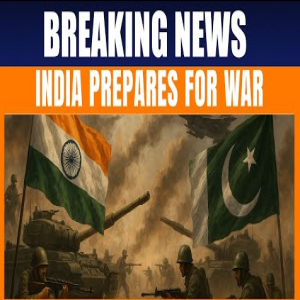
.png) Robert Clements
Robert Clements
.png)
Was speaking last evening to a man whose wife is an army officer posted somewhere near the treacherous snow-dusted stretches of Kashmir. He looked like a calm man—not the kind you'd expect to betray his emotions—but there, behind his tired smile, sat a pair of eyes that had clearly forgotten sleep.
"She says don't worry," he told me, stirring his tea with more force than necessary, "but you know what 'don't worry' means?"
I did know.
Their two children were playing nearby, and every now and then, they'd sneak a glance at their father, checking his mood like you'd check the weather before a school trip. Children have a way of sensing things. They laugh and run around, but you can see it—the unease, the questions they're too young to ask.
As I watched, I felt a dull ache—no, not for the war itself—wars come and go. But for these everyday moments soaked in tension, for the way a nation's might rides on the shoulders of men and women who don't even ask to be called heroes.
My thoughts shifted then to our WhatsApp groups—the new war rooms of our generation. So much noise. Some baying for action, others for restraint. There are generals with blue ticks and prime ministers with profile pictures of sunsets, each offering a solution more theatrical than the last.
But I often wonder—do they see what I saw in that man's eyes? Do they hear the silence behind a soldier's "I'm okay"?
We light candles at vigils, we post photos of our flag, and we forward messages that start with "Salute to our brave soldiers!"
But I wonder—do we realise that behind every soldier there's a child, a wife, or a husband, as was this case, waiting to hear, "I'll be back soon," and hoping it won't be a lie?
And so today, as I hear the drums of war grow louder, my heart is with our jawans, our pilots, our naval officers—every man and woman in uniform who signed up not for fame or politics, but because they believed in something worth protecting.
But my prayer is not just for their courage. That is never in question. My prayer is for wisdom, for our leaders, for those in power, for those whose pens can write peace or provoke war with equal ease.
May their decisions be led not by pride, not by popularity polls, but by the quiet courage of those who serve.
May we find solutions—not just ceasefires, but understanding.
Not just silence, but peace.
And if the drums must beat, let it be for celebration, not conflict. For parades, not pyres. For a country that chooses peace not because it is weak, but because it is strong enough to want no more widows, no more orphans, and no more weary eyes.
Amen!